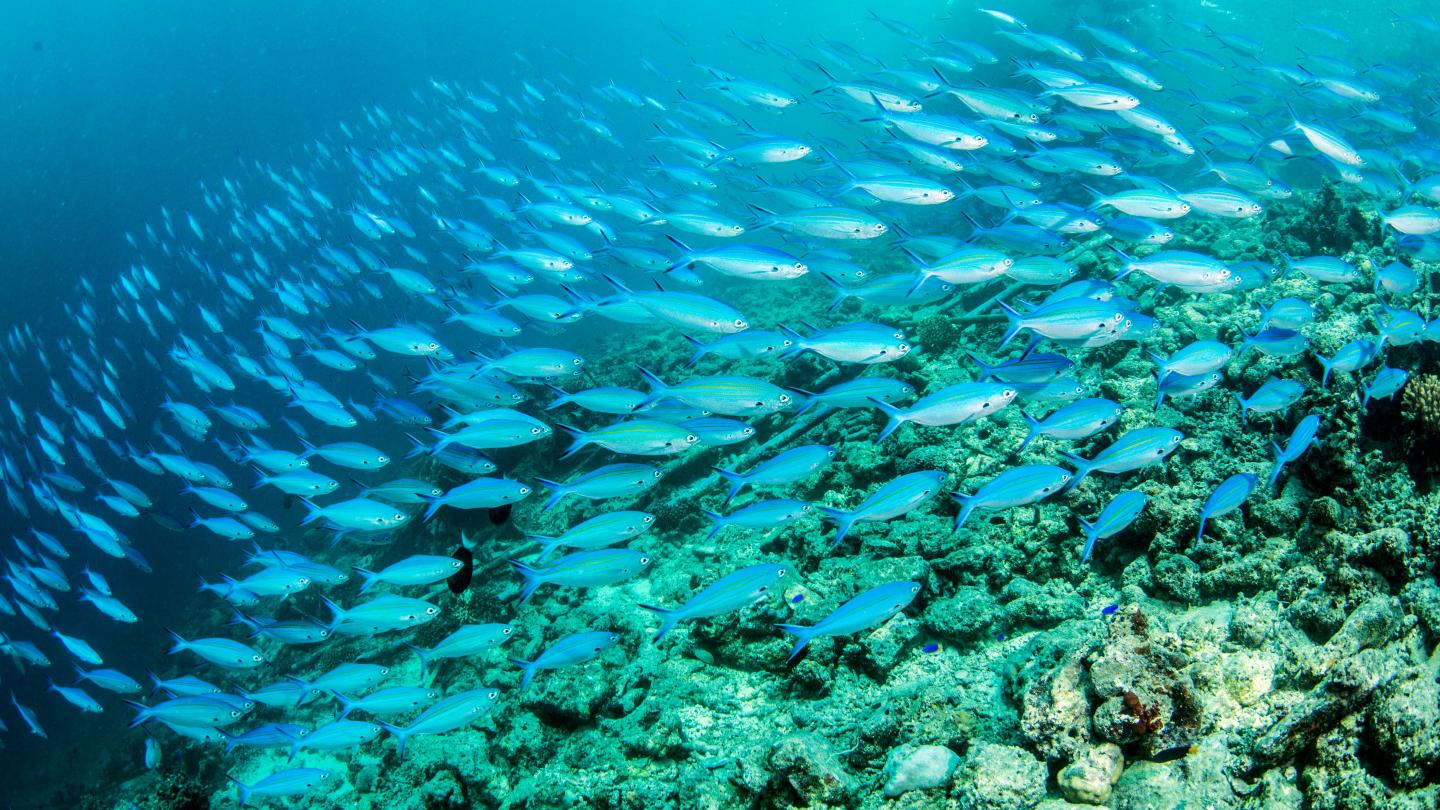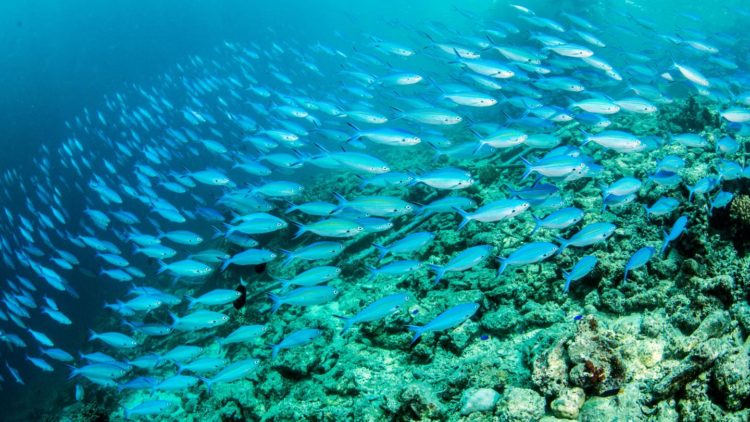
Credit: The University of Queensland
Healthy mangroves can help fight the consequences of climate change on coral reef fisheries, according to a University of Queensland-led study.
UQ’s Professor Peter Mumby said corals have been bleached and reefs have lost their structural complexity as a major consequence of warming seas.
“Many people are worried that – due to climate change – reef fishery yields could halve if coral reefs flatten, losing the hiding places that support thousands of fish,” he said.
“When a young fish arrives at a degraded reef it has nowhere to hide and is easily targeted by predators.
“Of course, predators experience the same problem when they’re young, so the entire food web becomes unproductive and few fish survive.”
Despite the alarming trend, the team found mangroves provided a partial solution.
“We know that many reef fish can use mangroves as an alternative nursery habitat to the reef,” Professor Mumby said.
“Mangroves provide a calm, safe environment with plenty of food and allow fish to grow larger before heading out to the reef as adults.
“In fact, we discovered that these nurseries could support fisheries productivity that is equal to that in complex reefs that lack nurseries.”
The researchers from UQ, the ARC Centre of Excellence for Coral Reef Studies and Victoria University of Wellington, compared and validated model predictions with field data from Belize.
Victoria University’s Dr Alice Rogers said the results should inform reef fisheries management strategies to protect areas now and into the future.
“Mangrove nurseries essentially allow some fish to sidestep the challenges of early life on a degraded reef,” she said.
“These fish then benefit by finding it relatively easy to find food because it has few places to hide.
“Mangrove restoration can be important, but in places where that’s impossible, future research might examine adapting structures to offer mangrove-like nursery functions.
“This would be in environments that either do not support natural mangrove forests or have too large a tidal range to provide stable nursery functions in coastal fringes.”
Professor Mumby said the protection and restoration of mangrove habitats should remain a priority.
“While we need to take every effort to prevent reef degradation, our study reveals that healthy mangrove forests can help buffer the effects of habitat loss on reef fisheries.
“It’s critical that they need to remain a priority as part of the battle to mitigate climate change impacts on coral reefs and their functioning.
“Ultimately, we need to protect intact combinations of mangroves and coral reefs.”
###
The research has been published in PLOS Biology (DOI: 10.1371/journal.pbio.3000510).
High-resolution images for this story are available via Dropbox: https:/
Media Contact
Professor Peter Mumby
[email protected]
61-449-811-589
Original Source
https:/
Related Journal Article
http://dx.





